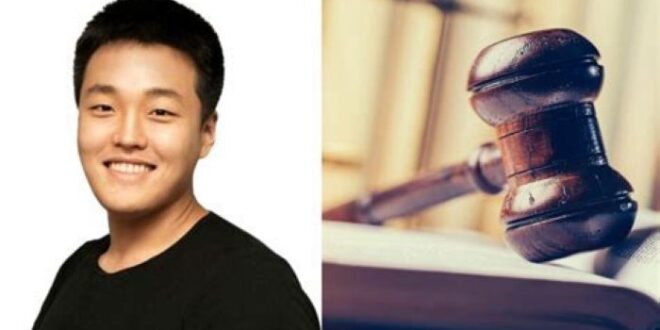Do Kwon, the co-founder of Terraform Labs and the architect behind the ill-fated Luna cryptocurrency, has pleaded not guilty to fraud charges in the United States following his extradition from Montenegro. This legal development marks a significant chapter in a long-running saga that has shaken the crypto world, especially in light of the collapse of TerraUSD (UST) and its associated ecosystem.
Background on the Case
Kwon’s extradition to the U.S. came after months of legal battles and investigations. The U.S. authorities have accused him of orchestrating a massive fraud that led to the collapse of the Terra blockchain and its stablecoin, TerraUSD, in 2022. The crash wiped out billions of dollars in value and severely impacted thousands of investors.
The charges levied against Kwon in the U.S. include conspiracy to defraud, securities fraud, wire fraud, and money laundering. These allegations add to his already significant legal challenges, as Kwon has faced various charges in other jurisdictions, including South Korea, where he and his partner, Daniel Shin, have been indicted for fraud and violation of capital markets laws.
Kwon’s Not Guilty Plea
Upon appearing in a U.S. federal court, Kwon denied all charges against him, maintaining that he was not involved in fraudulent activities. His legal team has vowed to fight the charges, arguing that Kwon did not engage in intentional wrongdoing and that the collapse of the Terra ecosystem was a result of market conditions rather than malicious actions.
Kwon’s plea is likely to lead to a lengthy legal battle as prosecutors work to prove the extent of the alleged fraud. The case is set to be one of the highest-profile crypto-related trials in recent years, given the global impact of the Terra collapse.
The Fallout from Terra’s Collapse
The implosion of Terraform Labs and its associated assets sent shockwaves through the cryptocurrency market, affecting both retail and institutional investors. At its peak, TerraUSD was one of the largest stablecoins in the world, and Luna was among the top-performing altcoins.
Following the crash, authorities in South Korea issued an arrest warrant for Kwon, accusing him of orchestrating a fraudulent scheme that manipulated the market and misled investors. The U.S. charges align with these accusations but involve broader allegations of a coordinated effort to deceive investors and regulatory bodies.
What’s at Stake?
If Kwon is convicted, the legal consequences could be severe, potentially resulting in a lengthy prison sentence. The case could also set a significant precedent for future legal actions against crypto founders and executives, especially as regulators around the world continue to grapple with the complex and often unregulated world of digital assets.
For Kwon, the trial represents a crucial turning point. If he is able to successfully defend himself, it could clear his name and potentially open doors for his return to the crypto industry. However, if convicted, it would be a major blow to his career and could further damage the reputation of the Terra project.
Global Implications
The outcome of Kwon’s case may reverberate throughout the crypto space, particularly in how regulators approach fraud and mismanagement within the blockchain industry. With growing scrutiny on digital assets, the case could catalyze more stringent regulatory measures for crypto startups and lead to greater investor protection frameworks.
As the legal proceedings continue, the crypto community will be watching closely. The trial is expected to highlight the challenges and risks of the emerging digital asset market, especially in areas like stablecoins and decentralized finance (DeFi), which have been central to Kwon’s work.
Do Kwon’s not guilty plea marks the beginning of a highly anticipated legal battle that will play out in the U.S. court system. While his defense team works to clear his name, the broader crypto industry will be forced to reckon with the legal implications of this case and what it means for the future of regulation in the digital asset space.
 Business Sandesh Indian Newspaper | Articles | Opinion Pieces | Research Studies | Findings & News | Sandesh News
Business Sandesh Indian Newspaper | Articles | Opinion Pieces | Research Studies | Findings & News | Sandesh News



